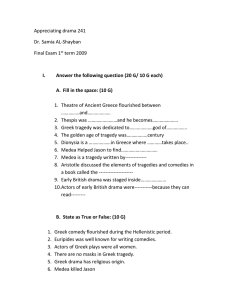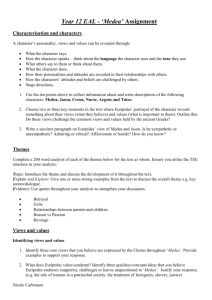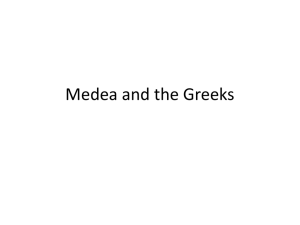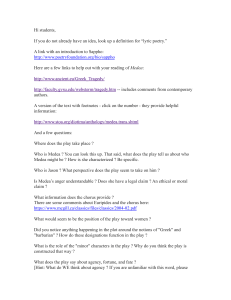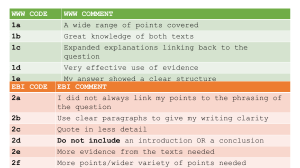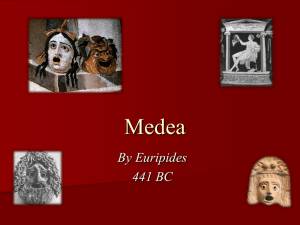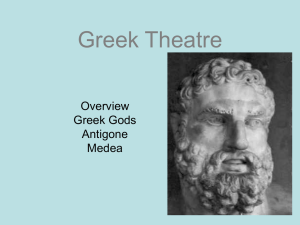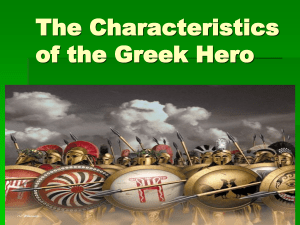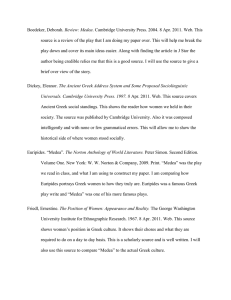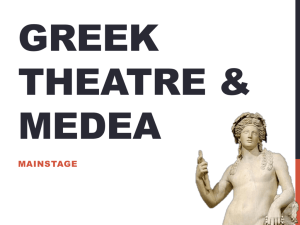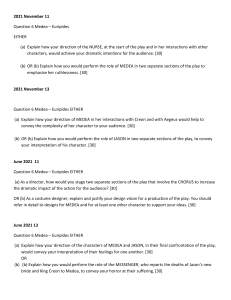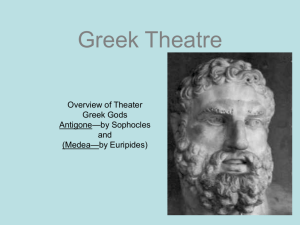MedeaNotes.doc
advertisement
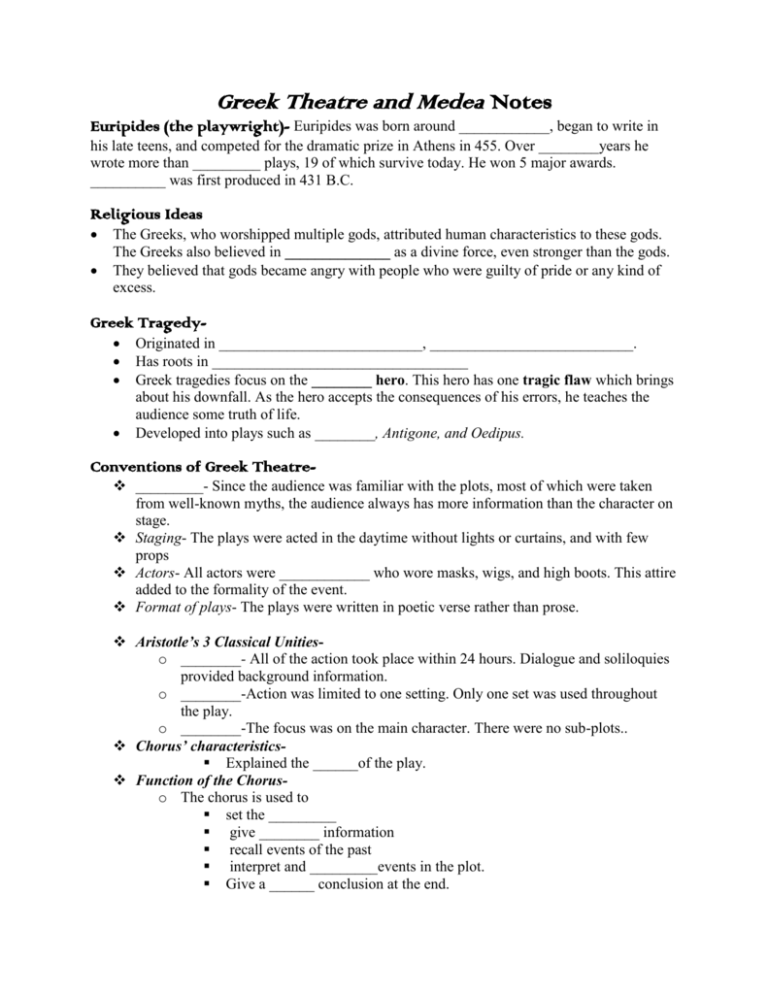
Greek Theatre and Medea Notes Euripides (the playwright)- Euripides was born around ____________, began to write in his late teens, and competed for the dramatic prize in Athens in 455. Over ________years he wrote more than _________ plays, 19 of which survive today. He won 5 major awards. __________ was first produced in 431 B.C. Religious Ideas The Greeks, who worshipped multiple gods, attributed human characteristics to these gods. The Greeks also believed in ______________ as a divine force, even stronger than the gods. They believed that gods became angry with people who were guilty of pride or any kind of excess. Greek Tragedy Originated in ___________________________, ___________________________. Has roots in __________________________________ Greek tragedies focus on the ________ hero. This hero has one tragic flaw which brings about his downfall. As the hero accepts the consequences of his errors, he teaches the audience some truth of life. Developed into plays such as ________, Antigone, and Oedipus. Conventions of Greek Theatre _________- Since the audience was familiar with the plots, most of which were taken from well-known myths, the audience always has more information than the character on stage. Staging- The plays were acted in the daytime without lights or curtains, and with few props Actors- All actors were ____________ who wore masks, wigs, and high boots. This attire added to the formality of the event. Format of plays- The plays were written in poetic verse rather than prose. Aristotle’s 3 Classical Unitieso ________- All of the action took place within 24 hours. Dialogue and soliloquies provided background information. o ________-Action was limited to one setting. Only one set was used throughout the play. o ________-The focus was on the main character. There were no sub-plots.. Chorus’ characteristics Explained the ______of the play. Function of the Choruso The chorus is used to set the _________ give ________ information recall events of the past interpret and _________events in the plot. Give a ______ conclusion at the end. Deus Ex Machina- This device means, literally “_______________.” In ancient Greek plays, this was lowered on to the stage by a mechanical device. Once the Deus Ex Machina arrived, the problems in the plot were solved with one stroke. Parts of the Playo o o o o Prologue:__________________________________________________ Parados:___________________________________________________ Ode:______________________________________________________ Paean:_____________________________________________________ Exodos:____________________________________________________ Greek TheatreThe first theatre was on the slopes of ___________. People sat in the open air on benches which surrounded the stage on three sides. Theatre was an ________________, because of how sound carried. Themes of Medea: Jealousy and Hate destroy people Excessive pride can lead to one’s downfall. Medea as a representation of oppressed women Being an alien in a foreign country causes problems Fate predetermines your life’s course. Legend of Medea: Popular Playwrights: Euripides Aeschylus Sophocles Aristophanes Princess of ________ and daughter of _________ Helps Jason to obtain the ____________ Forsakes Family and country to be with Jason in Greece They marry and she has his child In Greece, he betrays her and marries another Angry and betrayed, Medea kills Jason’s _________, Jason, and his ______________
